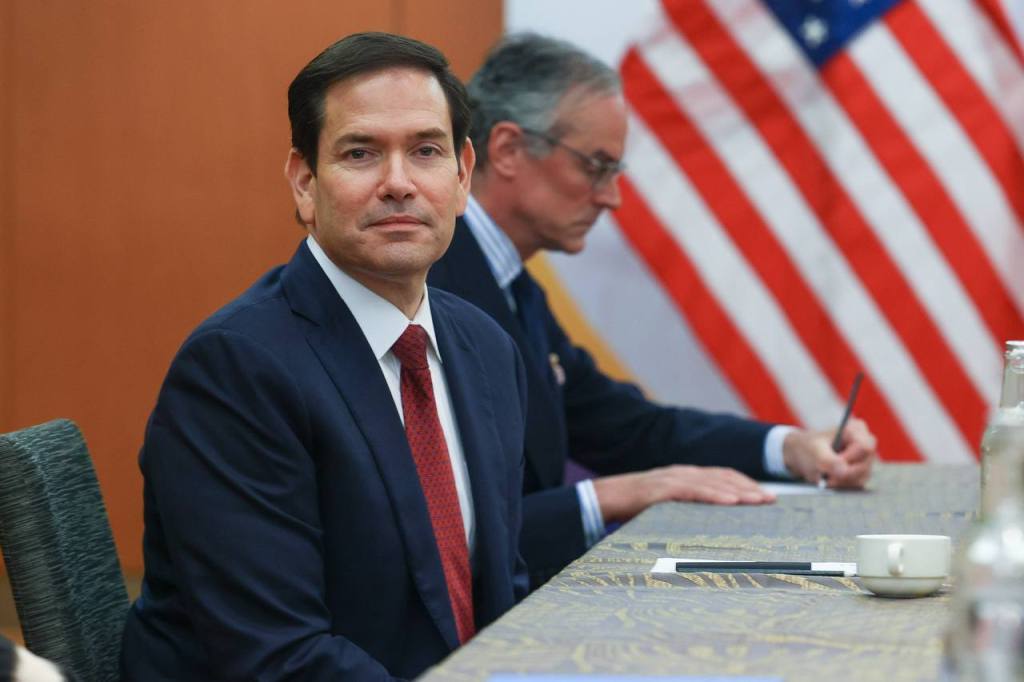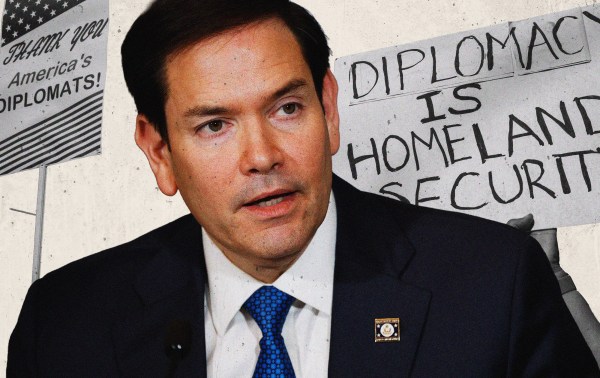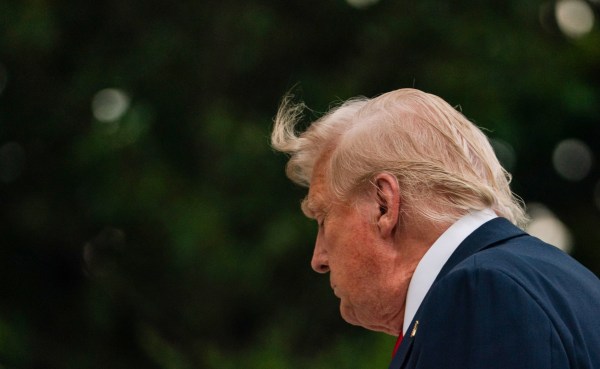Secretary of State Marco Rubio recently sent a directive to all of the State Department’s diplomatic and consular posts with a sweeping message: Stop talking about elections. The July 17 cable instructed American diplomats to avoid commenting on whether foreign elections are free or fair, and if any comment is to be made, officials should simply congratulate the winner.
The change appears to be the latest example of the administration’s reorientation of U.S. foreign policy around a narrowed set of interests, particularly economic deals and trade, and away from values-based American engagement abroad.
The memo, first reported by the Wall Street Journal, instructs diplomats to orient their public messaging around President Donald Trump’s America First foreign policy agenda, citing Trump’s May 13 speech in Saudi Arabia. The president praised the sovereignty of Gulf states and decried the “interventionalists” for “giving you lectures on how to live and how to govern your own affairs.”
U.S. ambassadors and consular officials should not issue any messages “opining on the fairness or integrity of an electoral process, its legitimacy, or the democratic values of the country in question,” according to the cable. Bullet points in the message made it plain diplomats weren’t to exercise any discretion: “DO focus on outcomes (e.g., “congratulations to the President-elect”); DON’T comment on process (e.g., “elections were free and fair”). … DON’T use euphemisms to try and bypass this guidance.”
But the cable seems like a solution in search of a problem. “This guidance provides common-sense clarity to the entire Department that elections-related communications should reflect President Trump’s ‘America First’ foreign policy agenda,” Deputy Secretary of State Christopher Landau said in a statement about the cable. The Dispatch asked the State Department what prompted the directive and whether there were any specific instances where a previous lack of clarity led to diplomatic or consular posts getting out ahead of the secretary with comments on elections. A State Department spokesperson responded by repeating lines from the cable: “Consistent with the administration’s emphasis on national sovereignty, the department will comment publicly on elections only when there is a clear and compelling U.S. foreign policy interest to do so.”
“This was a remarkably disempowering action. It was really taking the voice away from the ambassadors.”
Ian Kelly, former U.S. ambassador to Georgia
“Embassies already know that they’re not supposed to change U.S. policy with their pronouncements,” Ian Kelly, a State Department veteran and former U.S. ambassador to Georgia, told The Dispatch. “I don’t see why they had to even [send] this message unless they were just saying, ‘We don’t trust you guys.’”
The directive also seems in direct conflict with Secretary of State Rubio’s strategy for reorganizing the State Department. “The goal is to drive power and action in our agency to the regional bureaus and embassies, on everything we do,” Rubio told the Senate Foreign Relations Committee in May. He said that in many cases, smart diplomacy is driven from the bottom up by American officials on the ground, not top-down from far away offices. The cable now directs all diplomats to avoid election statements and defer any substantive comments to senior officials in Washington.
“This was a remarkably disempowering action,” Kelly said. “It was really taking the voice away from the ambassadors.”
At a high level, a shift away from commenting on electoral integrity could be consistent with a hard-edged realpolitik that tells countries, “We’re not going to comment on your internal affairs, so long as our bilateral interests are secure.” But the Trump administration hasn’t consistently adopted such an approach. In fact, Vice President J.D. Vance’s February speech at the Munich Security Conference seems in direct contradiction with the spirit of Rubio’s cable, lambasting European allies for not living up to our shared democratic values. The focus of Vance’s speech was not American security interests or partnerships with European nations but rather a lecture on “the threat from within, the retreat of Europe from some of its most fundamental values.” He even criticized how European leaders reacted to Romania’s annulled December 2024 election.
Democratic Sen. Andy Kim of New Jersey argued Vance’s speech is an example of the administration’s disingenuous embrace of sovereignty. “Clearly they only make those arguments based off of whenever it feels right for them,” he told NOTUS earlier this month in reaction to the cable. “And there’s just no consistency.”
Broadly, it’s also unclear how, as the cable seems to suggest, American interests conflict with supporting free and fair elections in other countries. While we’ve always had key partnerships with decidedly undemocratic nations like Saudi Arabia, the U.S. also has bolstered democratic functions at strategic moments. And for decades, American diplomats have also recognized that there is often overlap between providing rhetorical and material support for free and fair elections and compelling U.S. interests.
“We usually fail when we publicly nag other governments about their internal policies,” former Secretary of Defense Robert Gates argued in an op-ed last month. “Yet for most of our history, and especially during the Cold War, America’s national interest and reputation have been enhanced by consistent advocacy for liberty, human rights and individual dignity. America’s ideology matters in the contest with China. America First must not mean abandoning American values promoted by our government.”
In countries like Georgia, American officials who call out election manipulation and interference can provide crucial support to protesters and pro-democracy activists on the ground. But it is also in our strategic interests to support Georgian democracy as a bulwark against Russia’s attempts to bring the nation back under its sphere of influence.
Rubio understands the strategic importance of supporting democracies across the globe and recognized that America’s adversaries—Russia, China, and Iran—share an opposition to our democratic ideology. “What do they all have in common,” he said last May in a speech at an International Republican Institute (IRI) event. “These are not democrats, these are not people that believe in liberty.” In April, Rubio issued a statement congratulating the president of Ecuador on his reelection, but his comments also congratulated the country’s people “for their participation in a free, fair, transparent, and peaceful electoral process.”
Maybe such statements will continue—just not from U.S. ambassadors. But it’s hard to read the cable and the administration’s positioning as something other than a shrinking of America’s voice for democracy.
The IRI event Rubio spoke at last spring honored people fighting for democracy in their own countries, including a Catholic bishop who had been imprisoned in Nicaragua over his advocacy for religious and political freedom. “It’s critical that we continue to line up behind them, that we continue to speak on their behalf,” Rubio said of the honorees. “Freedom is not some quaint, old idea, whose time has come and gone.”










Please note that we at The Dispatch hold ourselves, our work, and our commenters to a higher standard than other places on the internet. We welcome comments that foster genuine debate or discussion—including comments critical of us or our work—but responses that include ad hominem attacks on fellow Dispatch members or are intended to stoke fear and anger may be moderated.
With your membership, you only have the ability to comment on The Morning Dispatch articles. Consider upgrading to join the conversation everywhere.